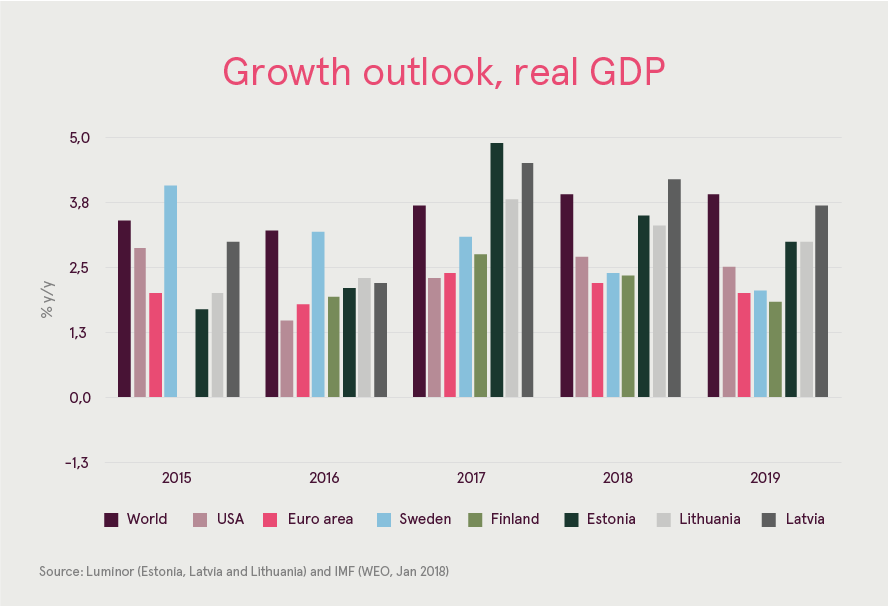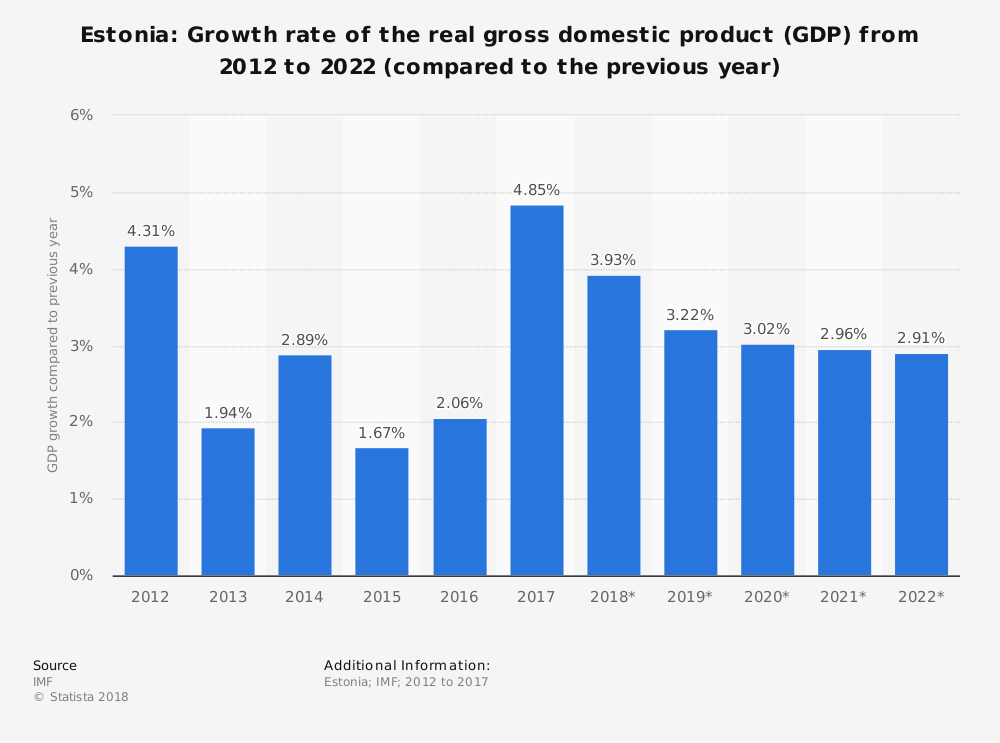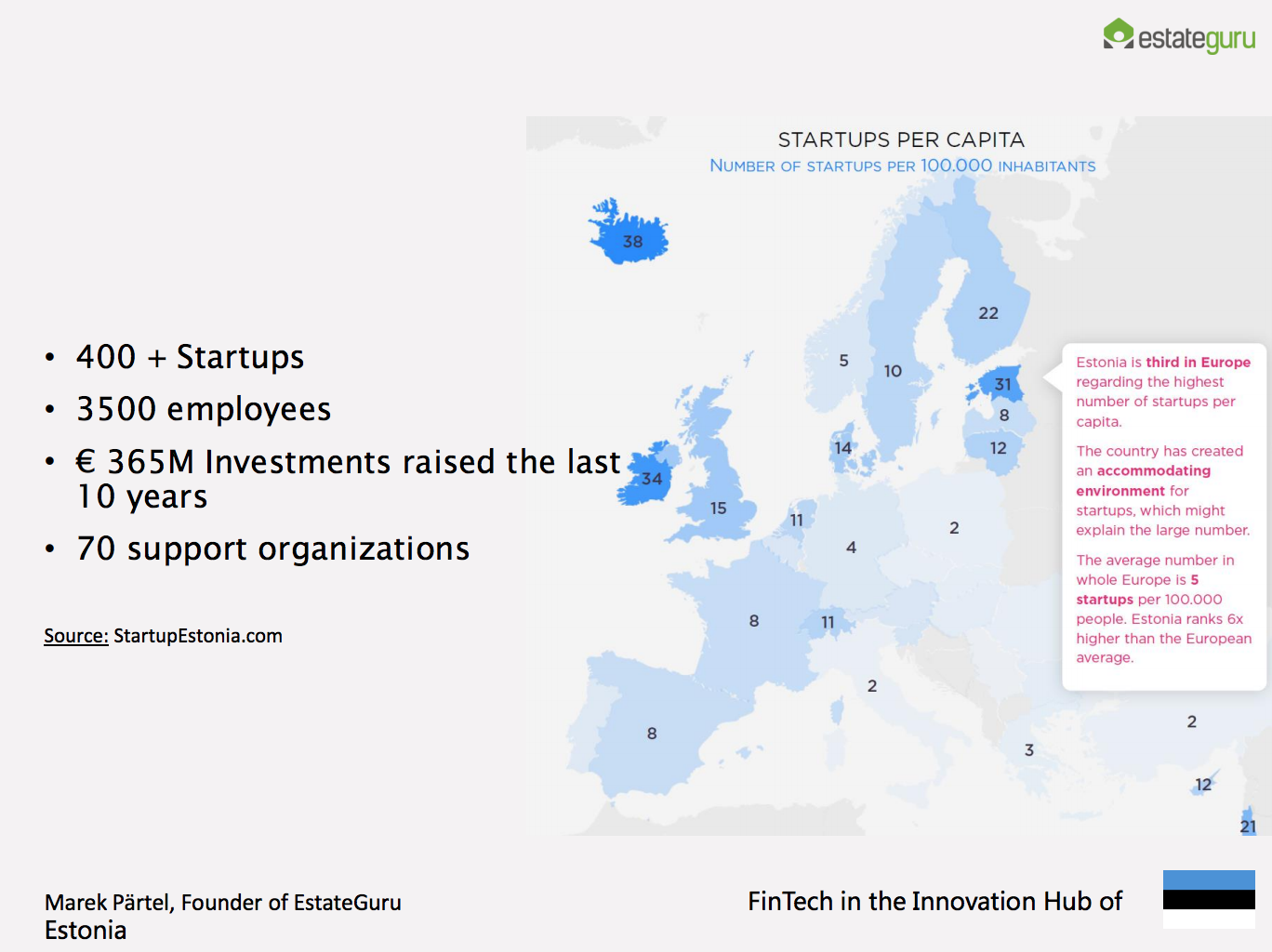
THE BALTIC ROUTE
Over the past two decades, the Baltic Sea Region – from the Baltic states to the Nordics – has developed into an integrated, high performing economic region.
The Baltic Sea Region economies have performed well – growing faster than many other European economies, as well as the broader EU group and they have averaged a GDP growth rate of 2.7% compared to 1.6% for the EU28 as a whole.

Estonia, for example, the country has been flourishing since its independence from the Soviet Union in 1991. Today, at the beginning of 2019, Estonia ranks 3rd in the European region when it comes to economic freedom. Estonia’s focus on the IT sector and startup world has contributed to the high-income economy that is currently among the fastest growing in the European Union and The increasing investments from around the world into Estonian startups, especially tech startups, has greatly contributed to the growing economy in the Baltic states.
Despite being a small market, the high level of technology penetration have produced a high number of tech hardware and software startups ever since the beginning of the “digital revolution”.
According to the World Economic Forum (WEF), the Baltic states are among the most innovative in the European Union when taking into account both startup creation as well as the creativity of employees in already existing enterprises. Among the 28 European countries, the three states were ranked in the top seven with Sweden.

Enhancement of R&D spending in the private sector, bolstering of the SME and start-up ecosystem and most importantly investment in the human capital are examples of novel avenues to be exploited further to be able to reap the full benefits from the global technological and digital bulls race of the next decade.

The future challenges for Estonia, Latvia and Lithuania will be pricipally related to challenges in accelerating productivity and value-added growth.
Sources : blog.reinvest24.com – bdforum.org – luminor.ee – fintechnews.ch
DISCLAIMER
This publication must not be regarded as offering a complete explanation of the investment tax, legal, and other type of matters that are contained within this publication.
Authors are not responsible for the results of any actions which are undertaken on the basis of the information which are contained within this publication, not for any error in, or omission from, this publication.
The authors expressly disclaim all and any liability and responsability to any person, entity or corporation who acts or fails to act as a consequence of any reliance upon the whole or any part of the contents of this publication.
Accordingly no person, entity or corporation should act or rely upon any matter or information as contained or implied within this publication without first obtaining advice from an appropriately qualified professional person or firm of advisors, and ensuring that such advice specifically relates to their particular circumstances.



